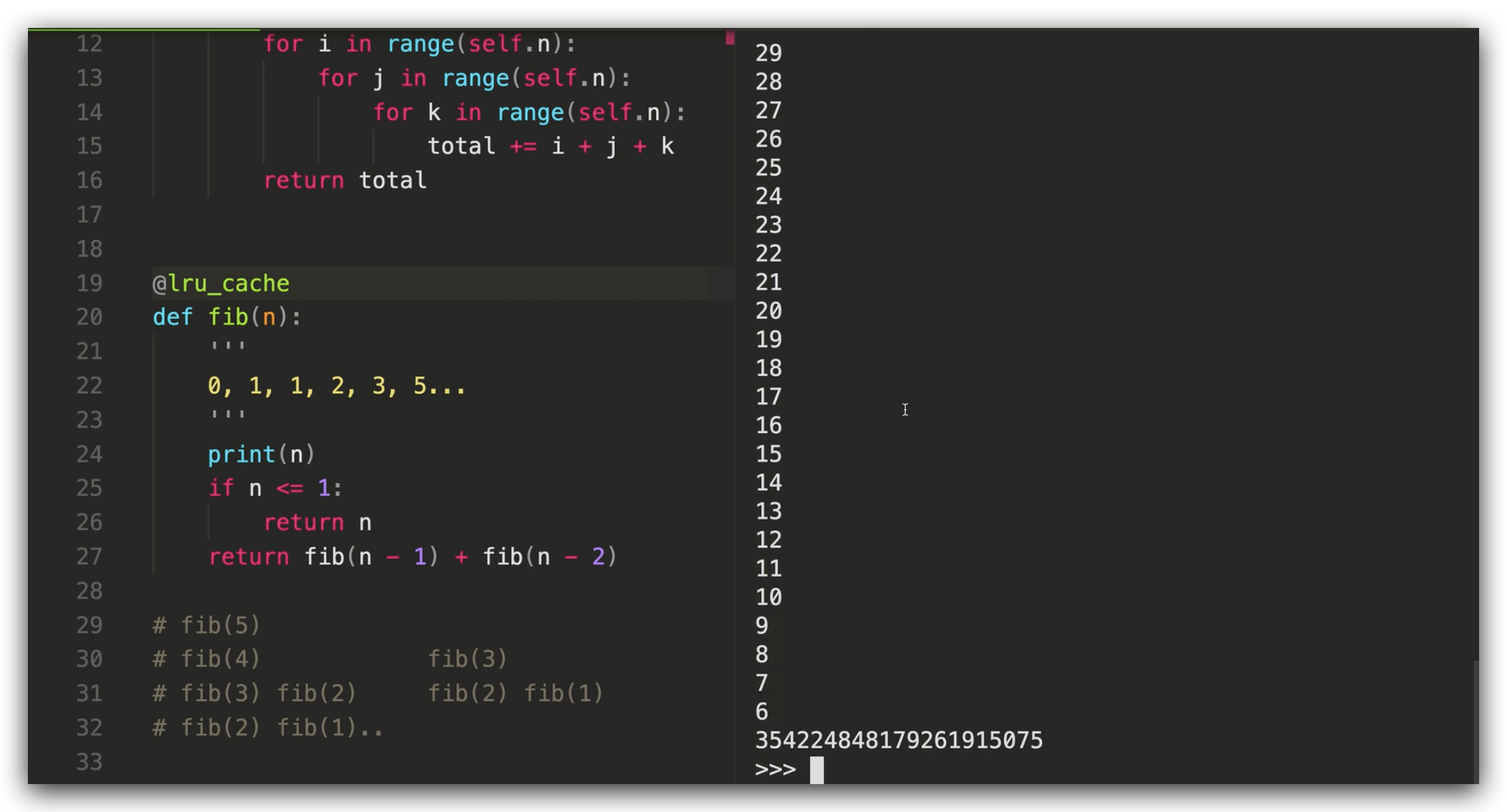Python Coding Interview
Python Advanced

Use enumerate() to iterate over both indices and values
Debug problematic code with breakpoint()
Format strings effectively with f-strings
Sort lists with custom arguments
Use generators instead of list comprehensions to conserve memory
Define default values when looking up dictionary keys
Count hashable objects with the collections.Counter class
Use the standard library to get lists of permutations and combinations
enumerate()
enumerate() is a built-in function to iterate through a sequence and keep track of both the index and the number.
>>> list(range(11))
[0, 1, 2, 3, 4, 5, 6, 7, 8, 9, 10]
>>> list(enumerate([1, 2, 3]))
[(0, 1), (1, 2), (2, 3)]
>>> list(enumerate([1, 2, 3], start=10))
[(10, 1), (11, 2), (12, 3)]
list = [45, 22, 14, 65, 97, 72].
for i, num in enumerate(numbers):
if num % 3 == 0:
numbers[i] = "fizz"
if num % 5 == 0:
numbers[i] = "buzz"
if num % 5 == 0 and num % 3 == 0:
numbers[i] = "fizzbuzz"
for i, num in enumerate(numbers):
if num % 5 == 0 and num % 3 == 0:
numbers[i] = "fizzbuzz"
elif num % 3 == 0:
numbers[i] = "fizz"
elif num % 5 == 0:
numbers[i] = "buzz"
Jupyter
Jupyter Notebook Interface
https://ipython.org/index.html
Jupyter Notebook
https://jupyter.readthedocs.io/en/latest/install.html
refs
https://realpython.com/lessons/python-coding-interview-tips-overview/
https://realpython.com/courses/python-range-function/
https://realpython.com/lessons/use-enumerate-keep-running-index/
©xgqfrms 2012-2020
www.cnblogs.com 发布文章使用:只允许注册用户才可以访问!